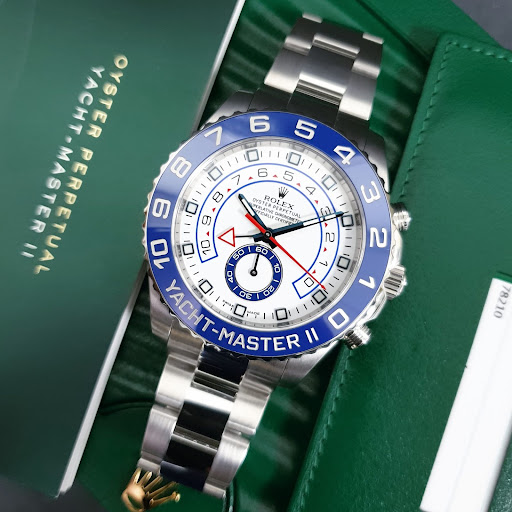Most commonly asked questions watch dealers get asked about Rolex watches
Rolex watches are one the world's most famous watchmakers, synonymous with style, status and durability. Here at Cuttings Jewellers and Pawnbrokers, we sell pre-owned luxury watches, including Rolex watches.
As watch dealers, we are frequently asked many of the same questions by people looking to purchase a Rolex. Here are some of the most common questions asked, and our answers.
When did Rolex stop using tritium?
Tritium is one of a number of different luminescent materials that watch manufacturers added to the hands and hour markers in watches so wearers could read the time in the dark. Rolex started using tritium in 1963 after the dangers of radium, a previously used substance, became well known.
Although tritium is also radioactive like radium, it is at a far lower and far safer level, which is why Rolex decided to use it as an alternative. However, they discontinued the use of this material in 1998.
Are Rolex watches automatic?
While some vintage Rolex watches may have hand-woven movements, all the watches in the current Rolex collection are self-winding (automatic). Rolex did, for a short while, produce watches that had Quartz movements.
Are Rolex watches waterproof?
To some extent, all Rolex watches are water resistant, however the degrees to which they are resistant differs depending on the watch. The Rolex Submariner can withstand the underwater pressure of 300m. However, the Cellini watch collection can only withstand depths of 50m.
When should I service my Rolex?
Rolex watches are built to last a lifetime, however they should still be carefully looked after and well maintained. The more you wear your watch, the more important it is to get it serviced. Rolex advises that you should have your watch looked at every 10 years, however for a vintage model it is advised to get the watch serviced every 5- 7 years.
Where is my Rolex serial number?
Knowing your watch serial number may be important in case anything goes wrong, to check its history and may be something future buyers will be interested in. On older models, the serial number can be found between the watch’s lower lugs, behind the bracelet at the 6 o’clock point.
From 2005, Rolex also included the serial number on the rehaut (the inner bezel ring between dial and crystal). Since 2008, the serial number has gone back to being on the rehaut.
Can Rolex glass break?
Rolex uses a modern sapphire crystal to protect it’s watch’s dials. This material is extraordinarily strong, second only to diamond on the Mohs scale. This being said, the material is not immune to damage. If hit with enough force, sapphire crystal can break, shattering and potentially allowing small shards to get inside the case and damage the watch.
The pre-1980s Rolex watches used acrylic crystals for their coverings which are far more susceptible to damage. This is something to be aware of if you purchase a vintage Rolex.
Can Rolex rust?
In the early 2000s, it was industry standard to use 316L steel for watches. However, it was around this time that Rolex decided to switch from this material to the 904L which is a far more corrosive resistant material. Some have speculated that this move was a result of some older watches experiencing rusting caused by exposure to seawater and moisture.
Rolex renamed this new metal, ‘Oystersteel by Rolex’. It is extremely resilient and highly unlikely to ever suffer from rusting.
In Summary:
Rolex is one of the most established and recognisable luxury watch brands in the world. Over the years, they have evolved their designs and technology to produce some of the world’s most incredible watches.
To shop any of the Rolex watches mentioned above, or to browse other Rolex watches, please visit our website here.




